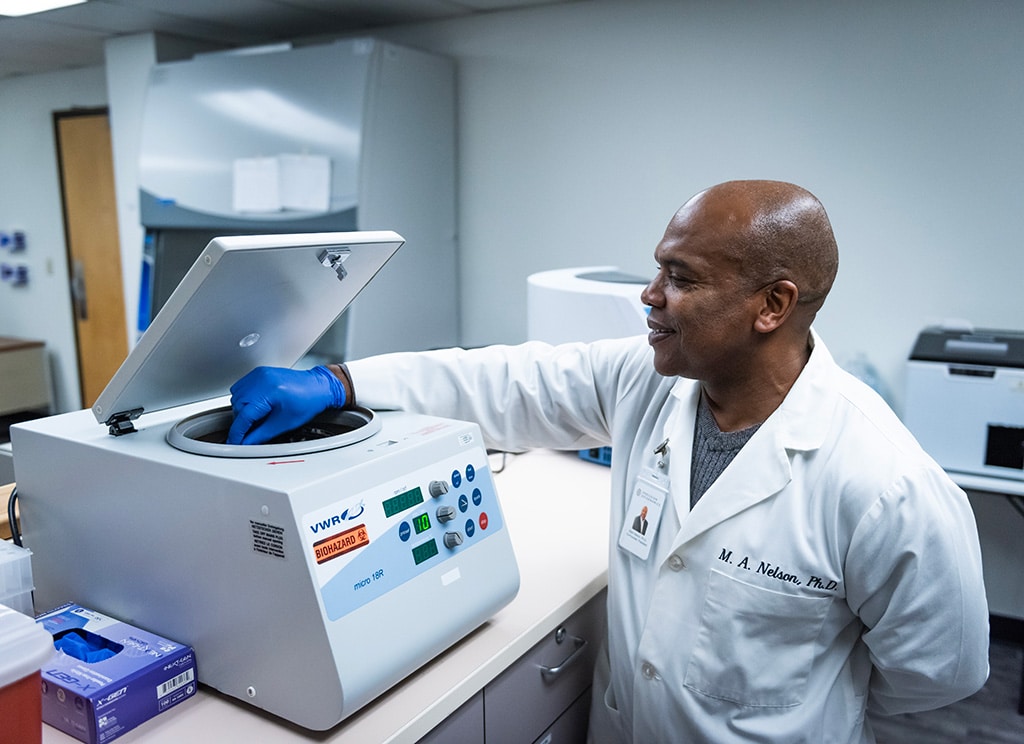
Mark Nelson, PhD
Chief Executive Officer
Dr. Nelson is a cofounder of Precision Epigenomics, Inc. He is a professor and former co-interim chair of pathology at the University of Arizona. Dr. Nelson was the Senner Endowment for Precision Health chair and a Hogarty Family Foundation award winner has over 30 years of experience in cancer biology, genomics, molecular biology, and translational science. He has proven success in cross-functional leadership, operations, and strategic planning and has a strong business acumen.









